Have you ever fallen in love with a product because of how delicious it smells? You know, because of that added element of luxury you get when applying it? Well, babe, we hate to be the bearers of bad beauty news but think of fragrance as that ex who lingers around your IG story. While flattering and somewhat satisfying to experience at first, the reality is that it can be totally toxic and detrimental to your health in the long run. Artificial scents can be found in almost any product we use on a regular basis. From the moisturizer you use in the A.M. to that laundry detergent you find yourself constantly reaching for (I mean does laundry day ever end?!) – fake scents are not only way common but can be dangerous for your health. We’re ready to unpack exactly what that means in this next one. Keep reading to discover The Danger of Synthetic Fragrance in Skincare and Beauty Products.

What do you mean by “synthetic fragrance”, anyway?
You already know that BBE is all about equipping you with the definitions you need when it comes to making clean beauty choices. So when it comes to “fragrance”, here’s the lowdown you should be aware of, sis.
Fragrance can mean a lot of different things. In this context though, the word “fragrance” is often defined as the chemicals that are put into a product to give it a specific scent, thus making it synthetic. Not so dreamy when you spell it out that way, right? However, the reality is that this type of fragrance can be found in a ton of products you have laying around the house. From your go-to cosmetics to those cleaning products you always count on, synthetic fragrance is absolutely everywhere.
We should also mention that although fragrance is often synthetic or artificial, it can indeed be natural as well. Many companies use organic ingredients to bring a bit of scent to their products, and there is nothing inherently wrong with that. Plus, we’ll get around to talking about more of these healthy options a little later in this blog. These good guys aside though, you still need to know all about what “fragrance” really means in most cases.
Fragrance isn’t as transparent as you think, babe.
It might go on clear and unnoticed, but synthetic fragrance certainly isn’t as transparent as you would think. In fact, despite its harmless appearance, this word is on the mind of health-conscious beauty junkies everywhere – and for good reason.
Here is where this whole synthetic fragrance thing gets a little shady. Brands and companies are able to use the word “fragrance” as a blanket ingredient to mask a slew of other chemicals they are actually including in their products. In fact, the Environmental Working Group (EWG) has asserted that the average fragrance contains approximately 14 chemicals that are not even listed on the product’s label. Due to the lack of testing on these unknown chemicals, their long-term risk is also unknown. Talk about a loophole, right?
Not only does this mean you’re not privy to all of what is actually inside of your products, but it also gives companies an opportunity to pack their items with toxic ingredients – without having to disclose what any of them are. This is disappointing, to say the least. Moreover, the most troublesome part of it all is that so many buyers have no clue that this is even a thing. At this point, you might be asking yourself how this type of “lying by omission” is even possible or legal. Well, we wondered the same thing girlfriend.
Blown away yet? Keep reading, sis.
Let us break this down further. Under the Fair Package and Labeling Act (1966), fragrances are considered a trade secret. You know, so those other companies can’t go and replicate those signature scents that make so many products unique. This means that brands do not have to break down the chemicals their fragrances are comprised of (because that would give away the secret!). On top of that, it means that they can totally get away with sneaking nasties into their products that you wouldn’t otherwise be down for.
Honestly, we thought this was *a lot* to digest. But you know us and we love our research, so we kept digging to find out more about what fragrance really means.
What are the real dangers of synthetic fragrance in my go-to products?

Well girlfriend, let’s just put it this way. There’s a reason why we are so skeptical about this whole fake fragrance thing. It’s because despite how good something might smell, it can be seriously detrimental to your health. And as you probably already know, we *so* cannot get behind anything like that. Beauty should be healthy, and you shouldn’t have to risk suffering from negative side effects just to use your favorite cosmetics.
When it comes to synthetic fragrance, those side effects we just mentioned can range from mild to, well, not so mild. We hate to give you a laundry list but for ease of reference, here are the many negative health effects that fragrance has been linked to:
- Migraines
- Asthma attacks
- Allergic reactions
- Hormone disruption
- Skin irritation
- Certain forms of cancer
As you can see, the repercussions of using fragrances are worrisome, to say the least. And honestly, it is best (and safest) to steer clear of this tricky ingredient. Especially given the fact that you will likely never know exactly what other chemicals it is masking, either. Additionally, you should be wary of brands that are using the “fragrance” term without further explanations on what their scent is actually composed of. Basically, the question you should ask yourself is “what are they trying to hide”. Because as it turns out, the answer is a lot.
I love smelling good after completing my beauty routine. What can I do to avoid synthetic scents?
The answer is simple, babe. You can avoid the danger of synthetic fragrance in skincare and beauty products by simply doing the following. Choose brands that make products that smell naturally delicious. By opting for skincare and beauty items that use naturally derived ingredients, you’ll get that *so fresh and so clean, clean* effect sans harsh side effects. So here’s a shameless plug on our end: from body wash to facial oils, BBE’s highly coveted products all smell amazing. Not to mention, without any help from those nasty synthetic fragrances.

Need some pointers on revamping your beauty & skincare go-to’s, sans synthetics? Here are the basics you need to still smell fresh to death.
Click add to cart on this baby to smell ahhh-mazing, without any nasty ingredients. You’ll be gently cleansing your skin with the relaxing scent of lavender and lemon, all thanks to only the best essential oils that (you guessed it) are anything but fake.

Loaded with real coconut oil, these self tanners actually smell like a tropical paradise, naturally. Because has a beach ever smelt like a fake, synthetic fragrance? C’mon now, sis. We didn’t think so, either.

The Brightening Coffee Bean Eye Cream
Thanks to cranberry seed extract and nourishing shea butter, this eye cream smells so fresh and energizing that it could complement any cup of java out there. Yes, even that overpriced latte you just can’t seem to quit craving in the A.M.

… That will quickly make you forget about all those other moisturizers that were packed with nasty, not-so-good-for-you, synthetic fragrances. What makes this gem smell so unreal? None other than certified organic rosemary extract and lemon oil, of course.

The tips you need to know to master avoiding synthetic fragrances, right now.
Feeling like you need a little more guidance before you put down this blog post? Don’t sweat it, sis. Now that you’re all brushed up on the danger of synthetic fragrance in skincare and beauty products, these additional tips will help you ditch them, pronto.
- Cut out synthetic fragrance from products you reach for on a regular basis. We’re talking laundry detergent, dish soap, and any other household items you couldn’t go without.
- Avoid using any products that list “fragrance” or “parfum” in their ingredients. I mean, masking those nasties in French sure isn’t any better, #amirite?
- Opt for brands that use organic essential oils in their products to make them smell unreal. *Cough, cough* Sorta like we do here at BBE.
- And finally, simply learn to live with a little less fragrance in your life. We get it, babe. Smelling good is a whole vibe. But if it comes at the detriment of your health, we think it’s worth re-evaluating your beauty priorities for.
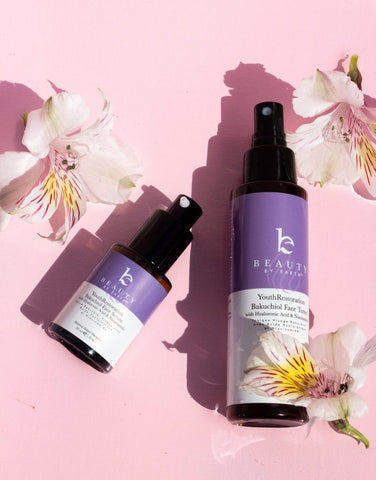
Ready to ditch those nasty synthetic fragrances once and for all?
We hope you got the info you needed out of this blog post on the danger of synthetic fragrance in skincare and beauty products. It is no wonder why this vague term could fool even the most clever of beauty junkies. I mean, who would have thought that such an innocent word could be hiding so much? Moreover, who would have thought that this was even allowed or legal? We enjoyed researching it all but more importantly, we loved sharing what we uncovered with you.
Now that you know what synthetic fragrance really means and what it can actually hide, spread the word. So many babes have no idea that this is even a thing! Oh and, the next time that you’re getting ready to pick up a new product, consider scrutinizing the label. And more importantly, be wary of brands that claim to use “fragrance” as an ingredient. Think about it, if they had nothing to hide, why would they even go there? We’re your besties in beauty, and we would never play you like that.
Love & Facts,
Carey <3
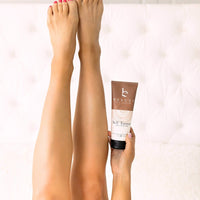
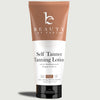
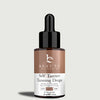
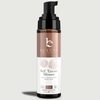
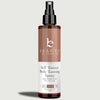
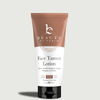
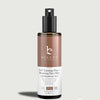
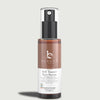
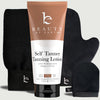
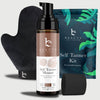

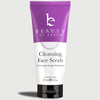
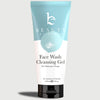

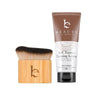











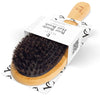
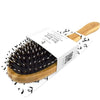
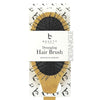
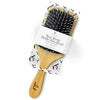
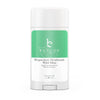


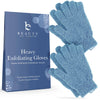
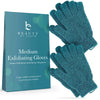
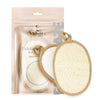


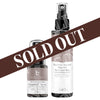





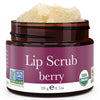
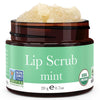
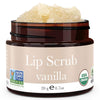





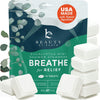
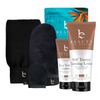
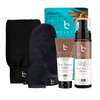


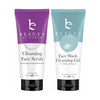
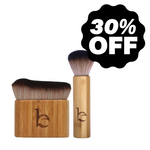
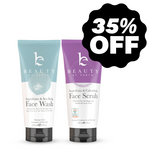
















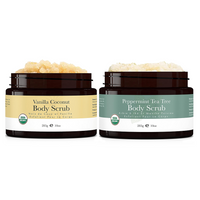
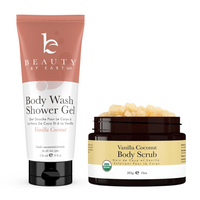
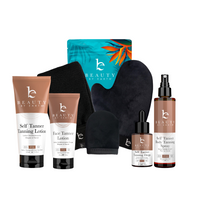

join the conversation